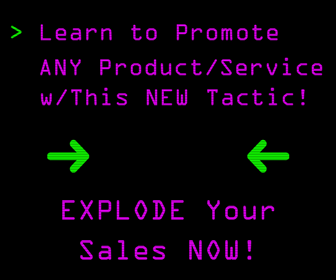Ever had a niche idea that seemed great at first, but then you did some research and realized you had tons of heavy competition from big websites with a lot of money and resources?
But just because you're facing heavy competition, it doesn't mean you can't succeed.
This is true even when it comes to SEO, a form of marketing that's notoriously competitive and ultimately zero-sum.
But how do you compete?
One thing's for sure: you're probably not going to get anywhere by just mimicking exactly what your competitors are doing.
Maybe your version of the content is better, but their ability to promote and market themselves means their content will probably win out.
One option is to do something different. If your competitor is doing one thing, do something that's almost the polar opposite.
An example would be that your main competitors publish a lot of short content pieces, each covering one narrow subtopic.
So instead of doing that, you focus on longer, more comprehensive pieces that cover a broader swathe of suptopics, and that aren't published as frequently.
This is exactly how one blogger managed to outcompete huge players like TripAdvisor and The Denver Post.
In the already saturated travel niche, that's quite a feat. Here's exactly how he did it.
“I’m already doing well with SEO and I want to scale up. But I’m a one man show competing with big brands. Can I really scale if I’m doing it all myself?”
Short answer: YES.
Just look at Aaron Johnson…
[image source: Backlinko]
Aaron runs the hiking site, DayHikesNearDenver.com.
[image source: Backlinko]
Even though Aaron’s site generated an impressive 630k visitors last year, he knew that he could do better.
That was the good news.
Here’s the bad news:
Google’s first page was littered with mega brand travel sites, like Tripadvisor and The Denver Post.
And Aaron would have to outrank these authority travel sites if he was going to scale his success.
And to do THAT, he couldn’t publish brief overviews of 879 different hiking trails.
Why?
Because that’s exactly what his competitors were doing.
For example, here’s the type of content Aaron’s competitors were putting out about one of the most popular hiking trails in Denver (called Hanging Lake):
[image source: Backlinko]
(This article is a superficial overview of the trail)
And here’s a boring black and white PDF from the USDA:
[image source: Backlinko]
These big sites could get away with this mediocre content because they had massive authority and social media followings.
But Aaron didn’t have a huge following.
So he did the opposite.
Instead of 100 trail guides, he wrote ONE. And he made it amazing.
In fact, Aaron’s guide is so insanely thorough that it needs a table of contents:
[image source: Backlinko]
But his guide isn’t just 3000 words of fluff. Aaron packed his guide with meaty value.
For example, Aaron included directions to the trailhead…
[image source: Backlinko]
…and tips for taking photos of the trail:
[image source: Backlinko]
To go “the extra mile”, Aaron even took his family to Hanging Lake so he could personally record info and take pictures:
[image source: Backlinko]
Because Aaron did the opposite of his entrenched competitors, he now ranks in the top 5 for several of his target keywords, including “hanging lake Colorado”:
[image source: Backlinko]
For more examples of how genuinely awesome content — plus a unique approach — can help you get ahead of bigger competitors, check out the full post over at Backlinko.
CHALLENGE Yourself to Profit!
Free Download: Build Your Profit-Generating Online Business With This Free Blueprint
Sign Up, follow the easy steps and You'll get the tactics, strategies & techniques needed to create your online profit stream. It's free!












